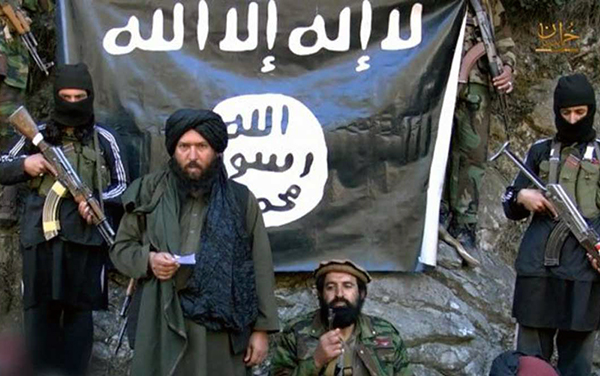The Islamic State-Khorasan (IS-K) is now shifting its war to neighbouring Pakistan as it comes under mounting pressure from the Taliban in Afghanistan, which has waged a fierce war against IS-K militants since seizing power in August last year, RFE/RL reported.
IS-K has claimed responsibility for a string of high-profile attacks in Pakistan, underscoring the growing threat it poses to the predominately Muslim nation of some 220 million people.
In the deadliest attack, an IS-K suicide bomber blew himself up inside a Shiite mosque in the northwestern city of Peshawar on March 4, killing at least 64 people and wounding scores of others. It was the most lethal attack in Pakistan in nearly four years.
Since it first emerged in 2015, Islamic State’s local affiliate in Afghanistan has focused its violent campaign within that country, fighting against Afghan and foreign forces as well as the Taliban, a rival militant group.
Experts believe IS-K militants have moved from their bases in Afghanistan and established cells in major Pakistani cities, RFE/RL reported.
The IS-K assaults have provoked fear and alarm in Pakistan, which has also witnessed a dramatic surge in attacks by the Tehrik-e Taliban Pakistan (TTP), a rival extremist group that has close ties with the Afghan Taliban.
IS-K has already carried out five attacks this year. On March 8, IS-K claimed responsibility for a roadside bomb that killed five members of the security forces and wounded 28 people others in southwestern Pakistan.
The growing attacks prompted Moazzam Jah Ansari, the police chief in Khyber Pakhtunkhwa, to declare IS-K a “bigger threat to peace and security in the province compared to the TTP”.
Many IS-K fighters are former members of the TTP, which was thrown into disarray and driven out of its bases in Pakistan’s northwestern tribal belt by a massive military offensive in 2014.
But the TTP soon found itself fighting turf wars with the Afghan Taliban. Since the Taliban takeover of Afghanistan, the rivalry has intensified.
The Afghan militants have waged a nationwide hunt for IS-K members and even targeted the country’s small Salafi minority to curb alleged support for the group from among its members.
Underscoring the rivalry, the Afghan Taliban condemned IS-K’s deadly attack in Peshawar. The TTP, meanwhile, said that such attacks do not align with its jihad, or holy war, in Pakistan.


















